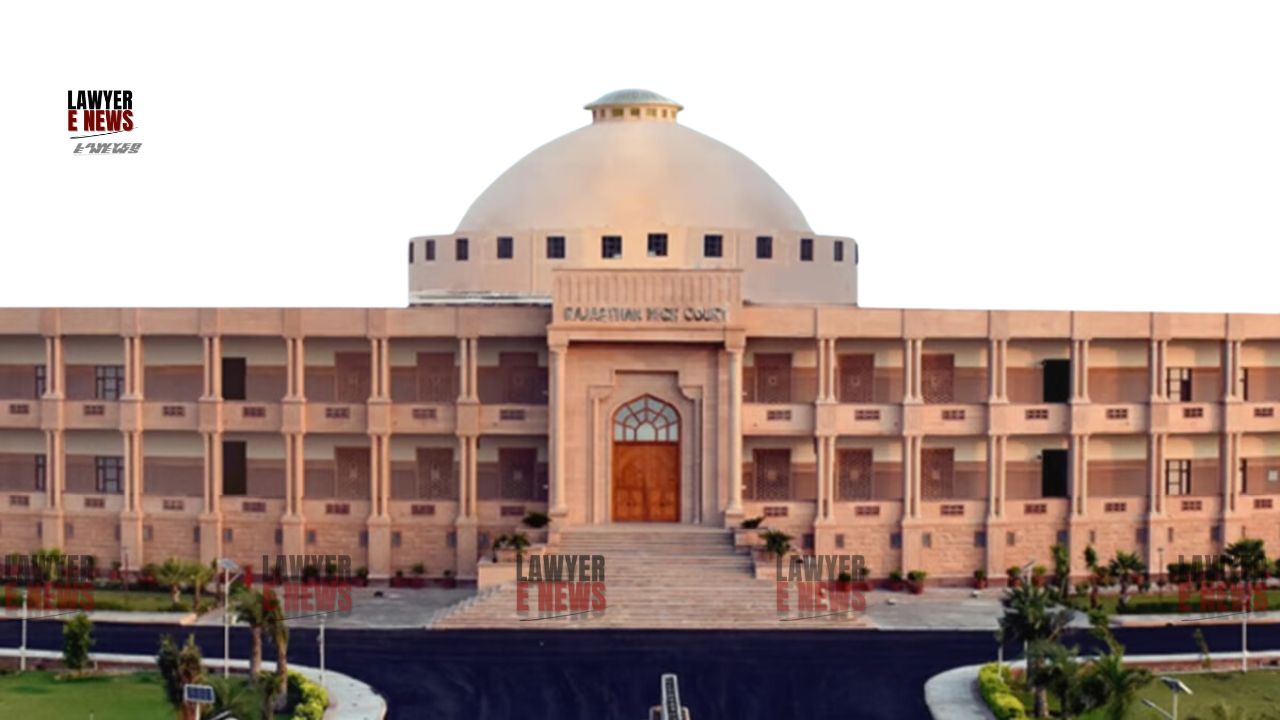-
by Admin
15 February 2026 5:35 AM



Rajasthan High Court in Abhilash v. The New India Insurance Company Ltd. & Ors. (S.B. Civil Writ Petition No. 11683/2017) ruled that the Motor Accidents Claims Tribunal (MACT) was justified in recalling an award obtained through fraudulent means, despite the absence of inherent review powers under the Motor Vehicles Act. The court dismissed the writ petition challenging the MACT’s decision to allow a review application based on fraud, setting a significant precedent for fraud-based interventions in tribunal orders.
The case arose from a motor accident that occurred on June 22, 2012. The claimants had successfully obtained an award of ₹20,65,900 along with 9% interest per annum from the MACT in Pali, holding the driver, owner, and insurance company jointly liable. However, after the award was passed on January 28, 2017, the insurance company filed a review application, alleging that the insurance policy presented during the claim proceedings was forged. The insurance policy number, they argued, was fraudulently altered, and the actual policy had been issued to another individual, Shrawan Kumar.
After reviewing the evidence, the MACT allowed the review application, set aside the award, and directed a fresh hearing. Aggrieved by this order, the petitioners approached the Rajasthan High Court, contending that the MACT did not possess the jurisdiction to review its own decisions.
Jurisdiction of the MACT to review its own orders: The petitioners argued that under Section 169 of the Motor Vehicles Act, 1988 and the applicable Rajasthan Motor Vehicles Rules, 1990, the MACT did not have the power to review its judgments, as Order 47 and Section 114 of the Code of Civil Procedure (CPC) were not applicable to tribunal proceedings.
Effect of fraud on judicial orders: The respondents contended that fraud nullifies any judgment, regardless of procedural restrictions on review, citing Supreme Court precedents.
The High Court concurred with the respondents, affirming that while the MACT does not generally have review powers, a clear exception exists in cases where fraud is alleged and proven. The court relied heavily on the judgments of the Supreme Court in United India Insurance Co. Ltd. vs. Rajendra Singh (AIR 2000 SC 1165) and A.V. Papayya Sastry vs. Government of A.P. (AIR 2007 SC 1546), which establish that fraud vitiates all judicial acts, rendering them null and void, and that no court or tribunal can allow an order obtained by fraud to stand.
The court emphasized that "fraud and justice never dwell together," and observed that no court or tribunal is powerless to recall an order if it finds that the order was obtained through fraud or misrepresentation. As stated in United India Insurance Co. Ltd. vs. Rajendra Singh, "[n]o court or tribunal can be regarded as powerless to recall its own order if it is convinced that the order was wangled through fraud."
The High Court held that even though the MACT lacks general review powers under the CPC, this limitation does not apply in cases where fraud vitiates the proceedings. It further ruled that fraud constitutes an exceptional circumstance that permits the tribunal to recall its own orders. The court also noted that the petitioners had already participated in the fresh proceedings before the MACT, implying an acknowledgment of the tribunal’s jurisdiction.
The petitioners’ reliance on earlier High Court rulings that denied MACT's review powers was deemed inapplicable in this context because those cases did not involve proven fraud. The court found that the MACT acted within its rights by allowing the review application and setting aside the award based on the fraudulent insurance policy.
The High Court dismissed the writ petition, upholding the MACT’s decision to set aside the original award and recommence the proceedings. The court underscored that fraud is a fundamental exception to the general rule that tribunals do not have the authority to review their own orders. As a result, the MACT was justified in recalling the award obtained through fraud, even in the absence of explicit statutory review powers.
Date of Decision: 18/09/2024
Abhilash v. The New India Insurance Company Ltd. & Ors.
